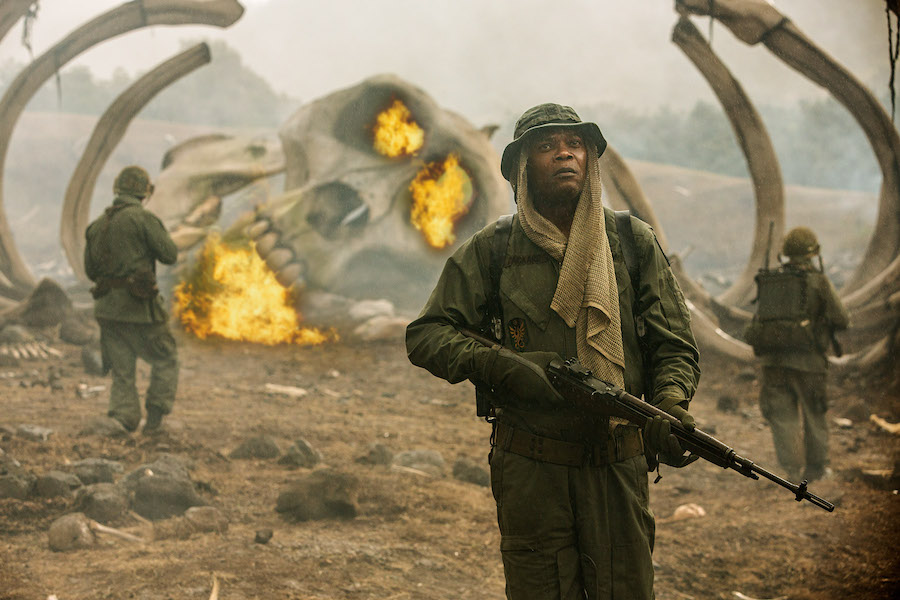Samuel L. Jackson takes his job very seriously. Even when he’s doing a big monster movie, like “Kong: Skull Island,” he does his research. Jackson plays the villain, or at least the human villain — a deranged colonel in the waning days of the Vietnam War who’s forced to take a platoon out to a remote South Pacific island and guard the scientists there to find prehistoric life. When they run afoul of the giant ape — plus giant reptiles, giant ants, giant spiders, etc. — he recklessly vows to destroy them all. The legendary actor, 68, talks to us about monster movies, backstory and his memories of the ‘Nam era.
What was your relationship with Kong while you were growing up? How do you tend to connect with the characters you play? RELATED: Interview: John Goodman talks ‘Kong’ and his movie’s big Trump joke What kind of backstory did you imagine for your character here? How vividly do you remember the Vietnam War era? I remember those were very volatile times, and I met many people who returned after fighting in Vietnam. They had faced death and nothing was known about PTSD. A lot happened in those times that informed us about war, and that helped me to interpret Colonel Packard. Films like “Apocalypse Now” and “Platoon” helped me, too. There is a way to interpret soldiers and honor them, and another form that dishonors them. We had very good military advisers on set, including some who had been part of the U.S. Army during Vietnam.
I saw them all. I saw every movie that had a monster in it — from “King Kong” to “Mighty Joe Young,” which was not a gigantic ape, but a normal size one. I’ve seen monster movies all my life.
You try to find that connection with the story and background of that character. If it is a novel, you are fortunate to have the material source and you can read about that person. But I do what I was taught to do in theater: sit down and write a biography about the character and his relationships with others in the story. You can invent countless details of a character, which are never mentioned on the big screen, but they let you know how you are going to play him in the movie and what kind of person you want the audience to see.
Packard is an army man, who went up in rank until he became a colonel. He has been in Vietnam since the beginning of the conflict, until the American army left. In his mind, they did not lose the war, but abandoned it. He has made this his career and it’s ruined his marriage. He’s married to his job. And now they slap him with an abandonment of something that he thinks they can win. He is there on a “babysitting” mission and is confronted with a new war, one he is determined not to lose. Being who he is, when Kong arrives, he believes in the superiority of man. Humans have always found how to survive these challenges, and they will survive this, too.
My number was 12 when the [draft] lottery was held. I had to keep up good grades and stay in school, or I would have to go to war. And three months into my first semester in college, my cousin, who was my age, died there. The Vietnam War was very real to me, and between the resistance to it, the civil rights movement and the “flower-power” movement, it created a very turbulent time in the U.S.
Samuel L. Jackson on ‘Kong’ and loving old monster movies

Chuck Zlotnick


















